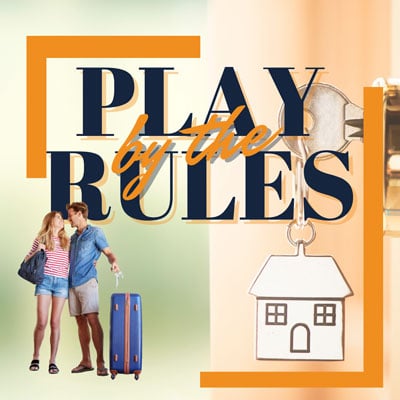
Rules are rules. Wherever you go, rules are being implemented. People grew up having rules. In your household, school, and even at work, rules govern. Rules basically dictate what you should and shouldn’t do. And sadly, people fail to see the silver lining to the “not-so-liberating rules” because for some, rules equate to restrictions and limits but in reality, rules make everything else easier. This topic will discuss the common ground Short term rental house rules that you may consider implementing in your rentals.
Managing a short-term rental is not an easy feat. You have to be firm and grounded in enforcing rules, not only to your team but to your guests, most importantly. Rules create order and that is one of the key ingredients when you have a short-term rental under your wing. Therefore, you have to be keen on keeping order. Otherwise, your short-term rental business will crumble.
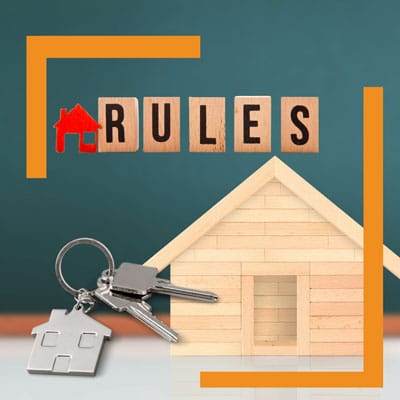
Given the world’s current situation, rules became people’s allies. When the government released the stay-at-home order, people adhered primarily because it would be beneficial to them. Rules benefit those who abide. This context goes to short-term rental, too.



Guests are the bloodline of your business, but even so, if they cannot maintain cleanliness in your unit, they’re nothing but a big blob of mess. You end up spending more on hiring cleaning professionals. Not to mention it along with the dinginess are damages to your property. Upon booking, if you can, conduct a background check on your guests to gauge if they have a history of holding parties or if they had issues keeping the house down.
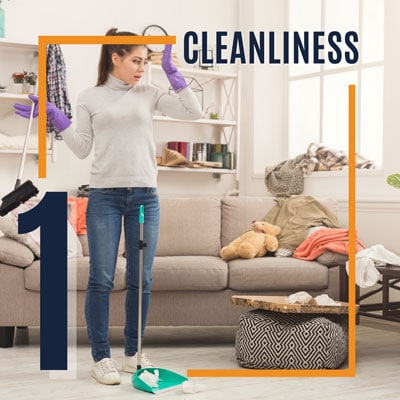
Guests rent out units for various reasons. Some travel for business while some are for pleasure and recreation. Guests differ in preferences. If you happen to have a business professional in your unit, you won’t have to worry about noise. But if your guests are those who rent out to make your property a venue for their party, then you’ll have to set your foot down. Be clear with them about the considerable volume that they should maintain.
Tip: If necessary, ask your guest about their purpose for staying in your unit. That way, you can give them a heads up about your rules on noise.

You should be able to reach your guests through their phones. It pays to have direct communication with them when anything arises, and you can coordinate with each other.
As much as possible, don’t just settle on a Google phone number; ask for their working phone number.

If your rental property comes with gated parking with remote access, you’ll most likely issue each guest a car or parking pass. Inform them that said pass is to ensure that they have
convenient space for their vehicles and that they need to make sure that they do not lose or take the access card with them, or they’ll have to pay the replacement fee.
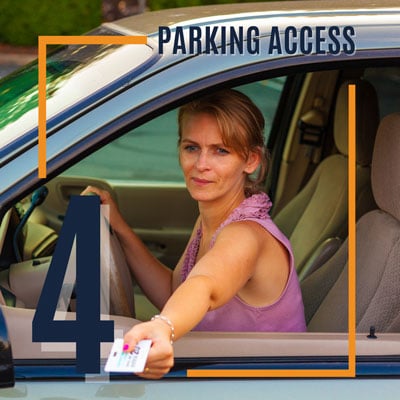
This needs no explanation from the word itself, No Smoking. In layman’s terms, smoking is not allowed. That’s just it. In some states where smoking is prohibited, you’ll have to pay a fine regardless if it’s from regular tobacco, cigarette, cannabis, or a vape.
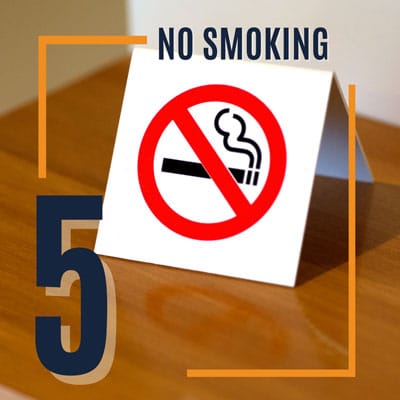
You have to be very precise on this. How many registered guests are currently staying in your short-term rental? If your guests booked for 5, then person number 6 shouldn’t be allowed entry unless otherwise, you have an internal agreement. This approach prevents your guests from having parties in your short-term rental.
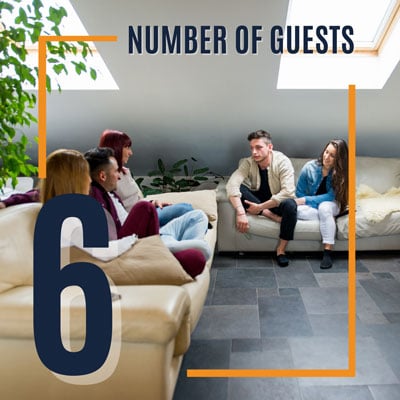
Almost every short-term rental has encountered this dilemma. Some guests overstay. An hour in excess creates a ripple effect from your housekeeping personnel down to the incoming guests. Ensure that the booking schedule (check-in and check-out) is properly enumerated in your contract.
What guests do not realize is that housekeeping staff are paid by the hour, and regardless of whether they have started cleaning or not, they still charge you for every hour that they wait for the guests to check out. Add also to the equation if you have incoming guests on that very same unit. What if the previous guests who caused a delay incurred too much mess? Stand your ground here.
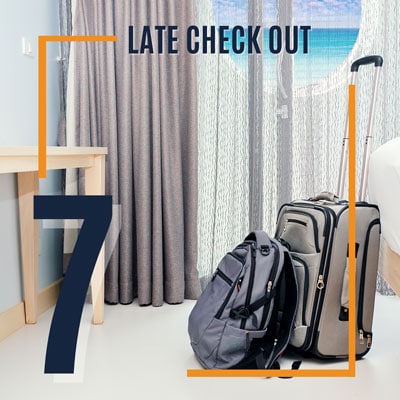
Pets are cute and are a great source of joy. But they can also potentially cause damage to your furnishings. Some pets also leave odor and hair that can be so frustrating to remove.
** With the exemption of Service Animal and Emotional Support Animal Service Animal A dog that is individually trained to do work or perform tasks to benefit an individual with a disability, including a physical, sensory, psychiatric, intellectual, or mental disability. These animals are sometimes referred to as “seeing eye” dogs, helper animals, service animals, or support animals.
Emotional Support Animal: These are animals used as part of medical treatment and/or therapy to assist with an individual’s daily functional tasks but are not limited to a specific type of animal and are not required to be trained to help an individual in a particular task. These animals are sometimes referred to as comfort animals or therapy animals.
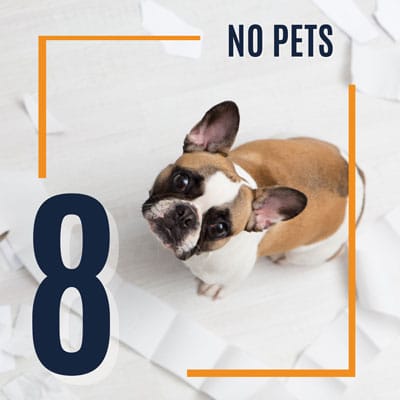

These measures not only protect you, as a short-term rental owner but your guests, as well. The stricter you are, the less you’ll encounter mishaps. You don’t only reduce your operational costs in terms of housekeeping and fines; you also save yourself the hassle and stress. Your short-term rental maintains a reputation of being orderly, too. While some have no problems adhering to rules, you’ll come across guests who would rebel against them. If you say No, be firm. You can’t just say No to one and Yes to the other.
Inform your team, too, to observe and practice keeping up with your rules. They represent you, after all. If all else fails, remember your house, your rules. Let them prevail.
